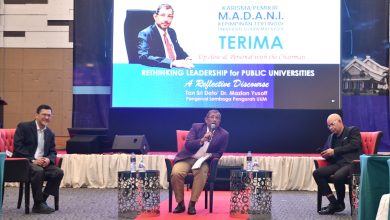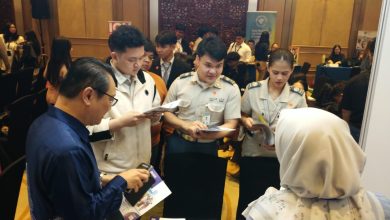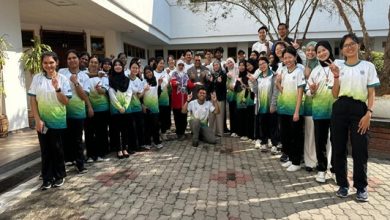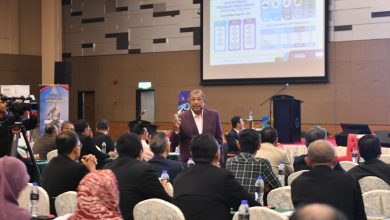14 November 2024: Strengthening the enabling ecosystem is crucial to realising the vision of MADANI Economy, as well as supporting the strategic plans of the Ministry of Higher Education (MoHE) and restoring the societal value of knowledge.
During the seventh session of the 37th Universiti Utara Malaysia (UUM) Convocation Ceremony, held at Mu’adzam Shah Hall, UUM Vice-Chancellor Prof. Dato’ Dr Mohd Foad Sakdan highlighted one of the key focuses of the Minister of Higher Education, Dato’ Seri DiRaja Dr. Zambry Abd Kadir: Enhancing the Enabling Ecosystem.
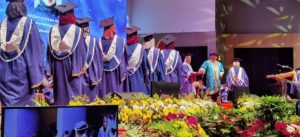
“To realise the vision of a MADANI economy, efforts to strengthen the enabling ecosystem are critical dimensions that need attention.
“The enabling ecosystem, from the perspective of the MADANI Economy, relates to achieving the seven key benchmarks over a 10-year period, as outlined in the MADANI economic framework,” he stated.
The benchmarks include economic growth, with Malaysia aiming to rank among the top 30 largest economies globally; improved competitiveness, aiming for 12th place in the Global Competitiveness Index; fairer worker compensation, targeting a labour income share of 45% of the nation’s Gross Domestic Product (GDP); and women’s empowerment, striving to increase women’s participation in the labour force to 60%.
In terms of education, he emphasised the importance of enablers like fostering love for knowledge and the cultural integration of learning within society.
“This is where universities and academicians play crucial role in strengthening the enabling ecosystem, ultimately contributing to cultural development and the advancement of civilisation.
“The culture of lifelong learning is noticeably lacking in our society, with the average number of books read among Malaysians are lower compared to developed countries,” he remarked.
He said the phenomenon of fake news is becoming increasingly widespread, fueled by the rapid advancement of technology and the dominance of social media as a primary source of information.
“Can watching video clips on social media be considered as a source of truth?
“If the enabling ecosystem is not strengthened, two concerning outcomes may arise. First, we will produce graduates with low higher education capital (HEDCAP); second, the literacy rate of the society will remain stagnant.
“This implies that achieving a ‘Madani Society’ will be challenging.
The question remains: are we adequately equipping a highly skilled workforce in the local job market to face economic shifts outlined in the National Energy Transition Roadmap (NETR), the New Industrial Master Plan (NIMP) 2030, or the National Semiconductor Strategy (NSS)?
“I am confident that if the economic literacy of the population is improved, efforts to transform the economy can be done more successful, reducing the costs of policy reversals or the failure to achieve set economic visions,” he expressed.
He further added that academicians should lead society with their expertise through advocacy activities, rather than merely following popular opinions that may not necessarily be grounded in truth.


